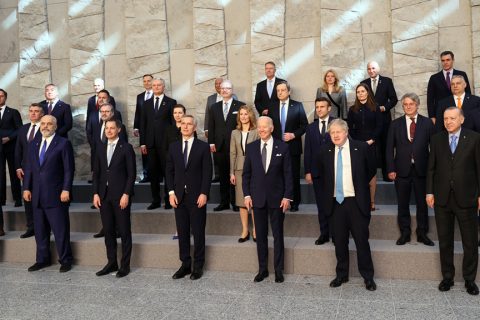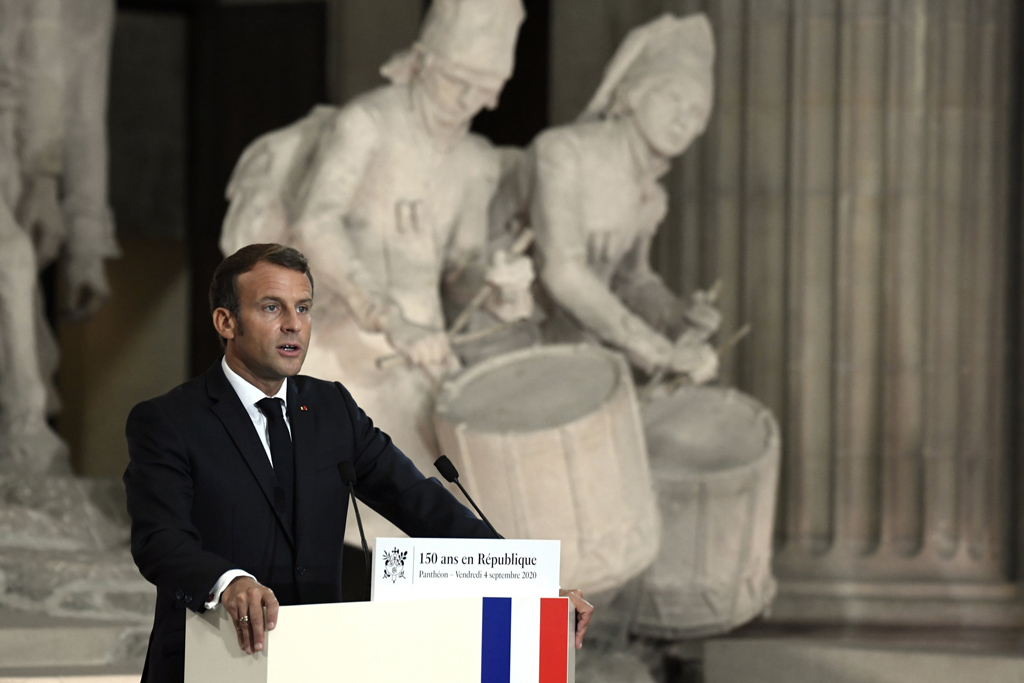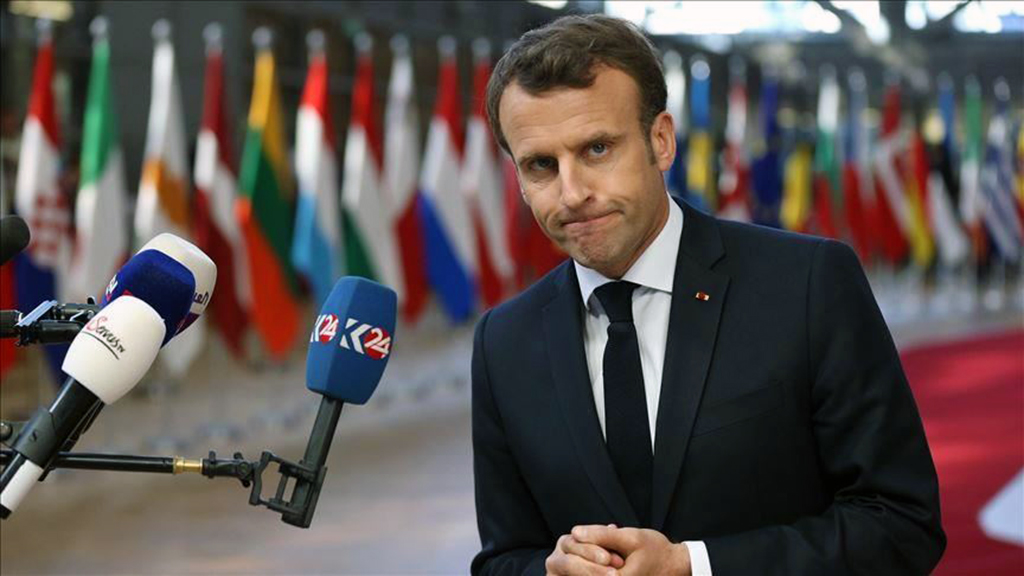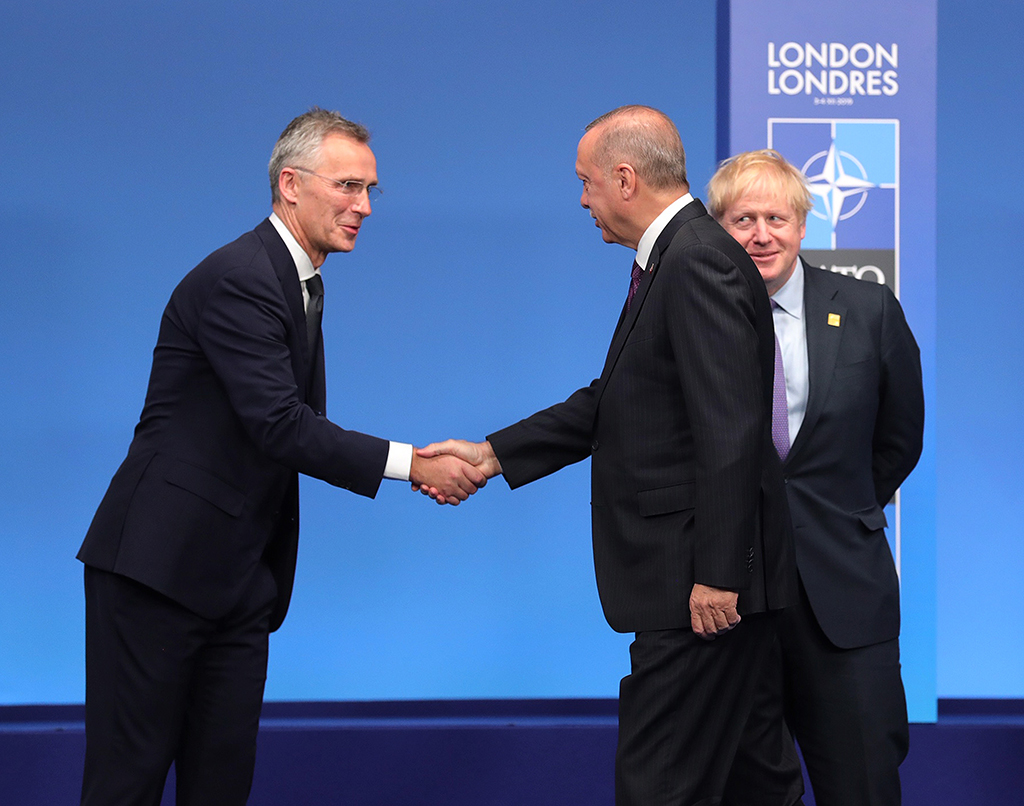Brain Dead

How to read French elections
| OpinionThe first round of the French presidential elections, which was held on April 10, 2022, …
-
Opinion
How to read French elections
By Muhittin AtamanThe French votes reveal that right-wing populism will continue to influence the European political domain in the near future
-
Experts Respond
Experts Respond: All Eyes on NATO, 6 Takeaways from the Emergency Summit
By Murat Yeşiltaş By Talha Köse By Gloria Shkurti Özdemir By Murat Aslan By Nurşin Ateşoğlu Güney By Çağrı Erhan By Matthew Bryza By Ece BabanThis study presents the views of leading experts on NATO’s emergency summit.
-
Opinion
The United States back to nowhere
By Muhittin AtamanWhether Joe Biden can put an end to the U.S. constantly losing power and influence in world politics is still a mystery
Bu Konuda Daha Fazla
-
EU summit and Macron’s brand new nonsense
By Burhanettin DuranFrench President Emmanuel Macron is back on the stage with more of the outlandish claims we have come to expect. In a seeming attempt to make up for his failure to get the European Union to sanction Turkey, the Frenchman launched a fresh attack against Ankara. While German Chancellor Angela Merkel stresses the importance of interdependence and a constructive relationship, Macron continues to threaten Turkey with sanctions.
-
Macron’s irrational actions and EU’s indifference
By Burhanettin DuranThe French president seems to forget that people in the region already know that France is not a regional power and indeed, has colonial fantasies.
-
NATO and EU share tragedy in Libya crisis
By Talha KöseFrench President Emmanuel Macron once said the 'NATO is brain dead.' Considering all the confusion the alliance is facing at critical moments, this statement has some basis. Lack of trust among the member countries and lack of cooperation and coordination have become some pervasive features of the strongest military alliance in modern history.
-
Did Turkey get what it wanted at the London...
By Burhanettin DuranThe NATO leaders' meeting went better than expected. In the alliance's final communique, released after talks concluded on Dec. 4, nations reiterated their commitment to Article 5 of the Washington Treaty, stressed the importance of financial burden-sharing and underlined their intention to seek a common position regarding migration, as well as a united front on cyber and hybrid threats. Noting Russian aggression as posing a possible threat, NATO members called for dialogue with Moscow on intermediate-range missiles. Furthermore, as per Washington's request, the organization hinted it would be turning its attention to the Asia-Pacific region, in a nod to Beijing's expanding influence.
-
We are out of ‘metus hostilis’ but still have...
By Kılıç Buğra KanatSallust, a Roman historian and a contemporary of Julius Ceasar was popularized in writings on contemporary international relations after the end of the Cold War. Those who connect the works and writings by him to the evolving international order mostly used the concept of "metus hostilis," the fear of an enemy. Sallust in his writings stated that a lack of common enemy can be detrimental for the unity and integrity of the state. According to him, the destruction of Rome's rival Carthage brought significant domestic discord for Rome.

















